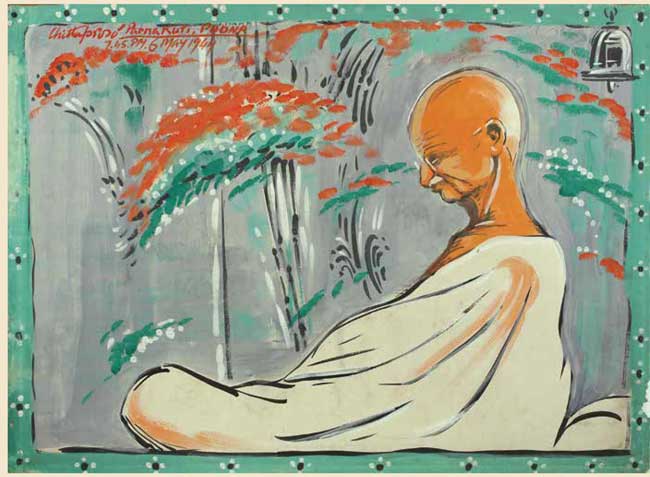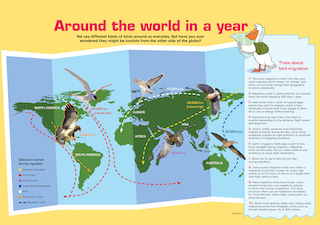Learn more from Mari Thekaekara >>
Mari Marcel Thekaekara, writer and Co-founder of ACCORD-Nilgiris says the tribal communities are a standing example of how women play a major role in preservation of eco historic cultural heritage in India“Once, I was walking with this young tribal girl through the forest and we stumbled upon a tuber. She plucked it, cut the eye of the tuber and buried it in the mud before taking it to be cooked. I asked her why she did so and she replied ‘If I don’t put it back, how will it grow again?’ and that moment made me realise how sensitive tribals are towards environment and nature. For them, putting back what they take is inherent in their culture and lifestyle,” says Mari Marcel Thekaekara, who has been running ACCORD (Action for Community Organisation, Rehabilitation and Development), an NGO that works for the Adivasis in the Nilgiris for the past three decades.
Mari believes that the hunter gatherer tribal communities have big lessons for the modern society. “Hills and forests are considered the gods and there’s no better demonstration of ecological sensitivity. They have lots to offer to the modern society.” Tribals have always had a great deal of dignity, observes Mari. “They have never been subjected to casteism and hence dignity is something important for them. But they face the challenge of facing the modern world on a daily basis and feeling the need to belong to,” she adds.
Through ACCORD, Mari and her husband Stan along with few like-minded friends have been working on the education and health aspects of the tribal communities. “We started off helping them get social justice as we felt that there were various kinds of exploitation on them. We persuaded them to retain the land as a lot of their culture and practices are wrapped up with the land, thus making them wear the tribal identity with pride.” That’s how Adivasi Munnetra Sangams were formed in tribal villages, facilitating a platform for them to address issues concerning the community.
Tribals exhibit an unbelievable level of understanding of a debatable subject like man-animal conflict especially with regards to elephants in the Nilgiris, observes Mari. “People have been killed by elephants and yet tribals do believe that the land belongs to the animals as well. They understand this much more than anybody else and this is no romanticising the issue.” She recalls how an elephant once strayed into the tribal hospital and one of the Irula Youths cut his banana plants and took them to the forest in order to give some food to the elephant and thus leading the animal away from the hospital. “So gracefully he parted some of his share with the jumbo. Such kind of a deeper empathy is rare to come by from non-tribals.“ […]
“Women carry the wisdom, recipes and beliefs of grannies. They carry the knowledge of what’s health and the starting point of a family’s health is the kitchen.“ […]
“Unequal burden of environmental degradation is placed on women. They are the ones who fetch the water and firewood, sow the seeds and saplings. They bear the cost of it but still excluded from the benefits of development. M.S. Swaminathan once said that if it were the men who carried water from far away to the houses, then every house would have had water by now.” As a human rights activist, Mari has written a book titled Endless Filth on the community that cleans toilets. […]
“Women have profound traditional and contemporary knowledge about the natural world around them and hence there’s a necessity to make policies mindful of the connection between environment and gender,” she says. “And that’s why it’s largely in the hands of women to sensitise our children towards the ecological heritage. Big changes always begin with small steps and the right place is always the home.”
Mari Marcel Thakarkara addressed the students of Lady Doak College, Madurai, as part of a two-day national workshop on Networking on Ecohistoric and Cultural Heritage of India.
Source: “Writer Mari Marcel Thekaekara says the tribal communities are a standing example of how women play a major role in preservation of eco historic cultural heritage in India” by A. Shrikumar, The Hindu, 27 January 2017
Address: https://www.thehindu.com/society/A-messenger-from-the-mountains/article17102329.ece
Date Visited: 13 July 2020
“Restoring land and livelihoods, empowering women, providing basic civic amenities such as fuel, water and sanitation are preconditions to advancements of rights of tribal children. Unless the government undertakes urgent steps to address these issues, its proclamations on child rights would remain examples of empty rhetoric and its actions would effectively continue to exclude those already sidelined.” – Archana Mehendale in “Isolated Communities and Ignored Claims: Tribal Children’s Right to Education in India” >>
“If women are empowered, there is more development in society” – Droupadi Murmu | Find this and other speeches by the 15th President of India >>
Find publications by reputed authors (incl. Open Access)
More on Childrens rights from UNICEF India (in English and these languages):
The India Love Project on Instagram: Launched by journalist couple Samar Halarnkar and Priya Ramani and their journalist-writer friend Niloufer Venkatraman
Interfaith and inter-caste marriages have long been frowned upon in conservative Indian families, but in recent years, the conversation around such unions has become even more fractious. […]
Mr Halarnkar told the BBC they had been “thinking about the [India Love] project for a year, even more” and that the controversy over the Tanishq ad lent it an immediacy, turning it into an idea whose time has come.
“We’ve felt very strongly about – and been disturbed by – the fake narrative around love and interfaith marriage,” he told me.
“There is a narrative that there are other, more insidious, motives for marriage, that love is being weaponised. But we didn’t know anyone who was thinking like that, who had any other motive than love for getting married.”
Through India Love Project, he says, “we are just providing a platform where people can share their stories”.At a time when hate is being manufactured, it’s important to tell these stories of love and how widespread it is and that it’s not just a flash in the pan.” […]
According to the India Human Development Survey, only about 5% of marriages are inter-caste. Interfaith unions are even rarer – one study put them at just over 2.2%. And those choosing to marry outside of these boundaries often face violence [as] interfaith marriages – especially those involving Hindu women and Muslim men – are being ascribed a much more sinister motive.
Source: “India Love Project: The Instagram account telling tales of ‘forbidden’ love” by Geeta Pandey, BBC News, 10 November 2020
URL:
Date visited: 10 November 2020
[Bold typeface added above for emphasis]
“We shall first have to give up this hubris of considering tribes backward. Every tribe has a rich and living cultural tradition and we must respect them.” – Vice President M. Venkaiah Naidu on the constitutional obligation to respect the cultural traditions of India’s tribal communities

Gandhian social movement | Constitution | Adverse inclusion >>
“Air is free to all but if it is polluted it harms our health… Next comes water… From now on we must take up the effort to secure water. Councillors are servants of the people and we have a right to question them.” – Mohandas K. Gandhi, Ahmedabad address on 1 January 1918; quoted by his grandson, Gopalkrishna Gandhi, in “On another New Year’s Day: Mahatma Gandhi’s ‘khorak’ a 100 years ago” (The Hindu, 1 January 2018)
“The world has enough for everyone’s need but not for anyone’s greed.” – Mahatma Gandhi quoted by Medha Patkar and Baba Amte (Narmada Bachao Andolan)
For additional learning resources visit the website of the Centre for Science and Environment (CSE), “a public interest research and advocacy organisation based in New Delhi”:
Communication for Awareness
CSE’s publications and informational products have been its strength and they have always combined research and readability to get the message across.

CSE’s tools for awareness raising are periodicals, publications, films/short spots, briefing papers, exhibitions, posters and other products. CSE’s informational products reach people in more diverse ways such as features service, website and e-news bulletins. […]
Source: About CSE
URL: https://www.cseindia.org
Date Visited: 10 July 2022